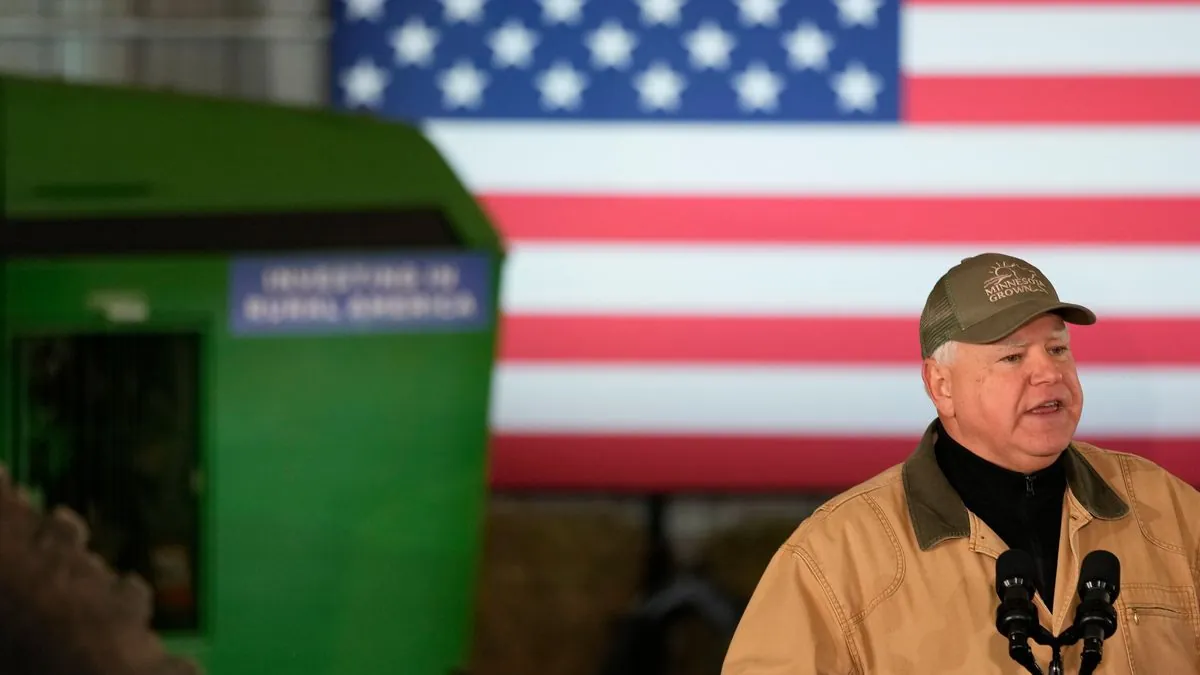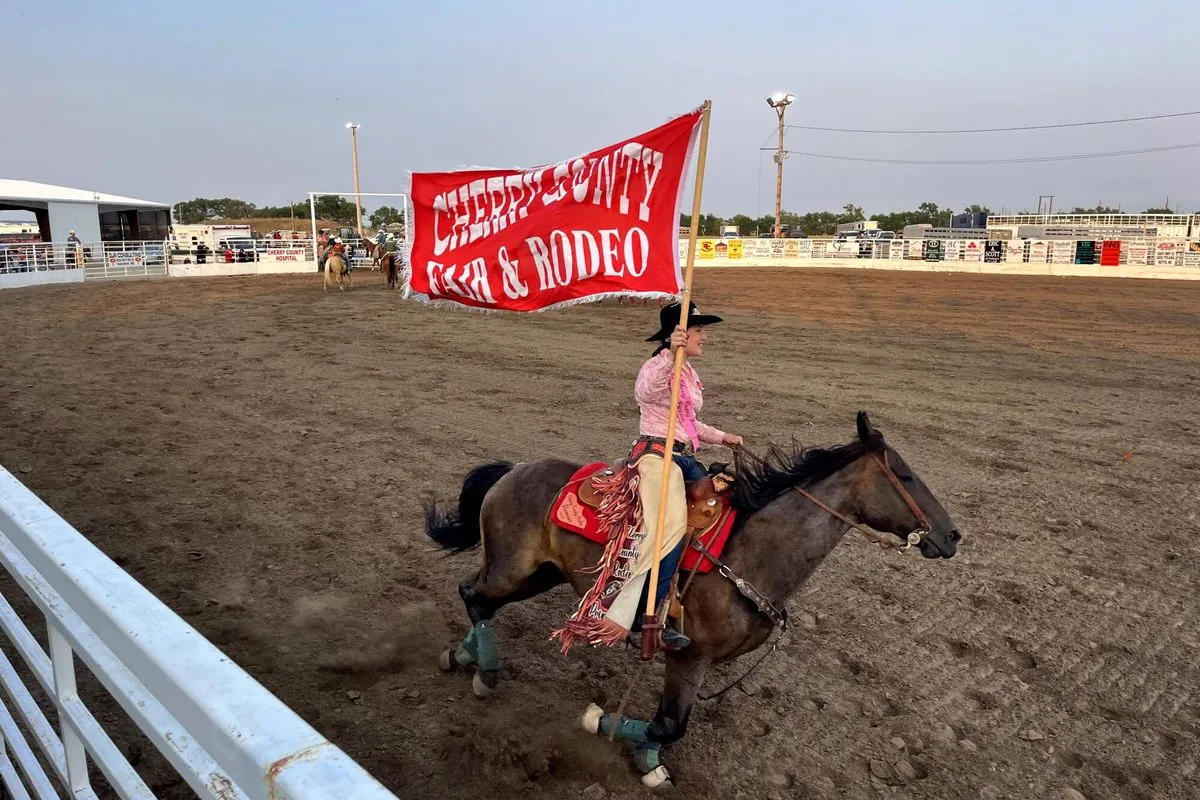Tim Walz: From Nebraska's Heartland to National Politics
Tim Walz's journey from small-town Nebraska to Democratic VP nominee is shaped by his father's illness and death. His experiences in rural America inform his political views, especially on healthcare.

Tim Walz, the Democratic vice presidential nominee, hails from the heart of rural America. His upbringing in small Nebraska towns has significantly influenced his political journey and views.
Born in 1964 in West Point, Nebraska, Walz spent a significant part of his childhood in Valentine, a remote city in the Sandhills region. Valentine, located in Cherry County, is larger than the state of Rhode Island but has a population of only 2,600. In this small community, Walz enjoyed a typical small-town life, participating in various sports and benefiting from his father's position as school superintendent.
However, Walz's life took an unexpected turn when his family moved to the even smaller town of Butte in 1979. This move was prompted by his father's lung cancer diagnosis. The family sought support from relatives in Butte and hoped the slower pace would benefit James Walz's health.

In Butte, with a population of just 326 as of 2020, Walz experienced the close-knit nature of small-town life. This community support became crucial as his father's illness progressed. To help with mounting medical bills, Walz joined the National Guard at 17, following in his father's footsteps as a Korean War veteran.
James Walz passed away in January 1984, leaving the family with significant medical debt. This experience profoundly impacted Tim Walz, shaping his views on healthcare and community support. He has often cited this period as a driving force behind his political career and policy positions.
Walz's background offers a stark contrast to his Republican counterpart, JD Vance. While Vance's "Hillbilly Elegy" describes a challenging upbringing in declining industrial towns, Walz's narrative focuses on the strength and support found in small, rural communities.
After his father's death, Walz briefly lost direction but eventually used the GI Bill to attend Chadron State College. This opportunity, provided by his military service, became another cornerstone of his political philosophy about government support for education.
Throughout his political career, from Congress to Minnesota governor and now as vice presidential nominee, Walz has consistently emphasized his small-town roots. He has championed policies aimed at easing medical debt and making healthcare more accessible, directly influenced by his family's experiences.
In 2024, as governor of Minnesota, Walz signed the Minnesota Debt Fairness Act, addressing issues similar to what his mother faced after his father's death. This action demonstrates how his personal history continues to shape his political decisions.
Walz's journey from the Sandhills of Nebraska to the national political stage is a testament to the impact of small-town values and experiences on his worldview. His story resonates with many Americans who have faced similar challenges in rural communities.
"We're fine pulling ourselves up from our bootstraps. We had no boots."
As Walz campaigns alongside Vice President Kamala Harris, his narrative of overcoming adversity in small-town America remains central to his message. His experiences in Valentine and Butte continue to inform his approach to national issues, particularly in healthcare and community support.


































